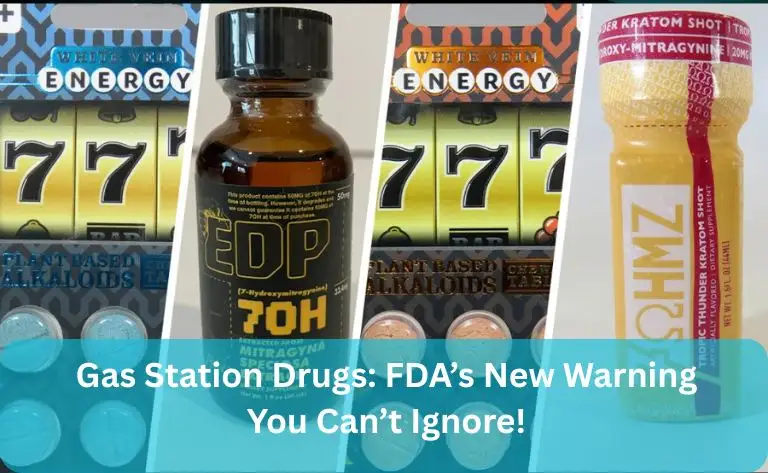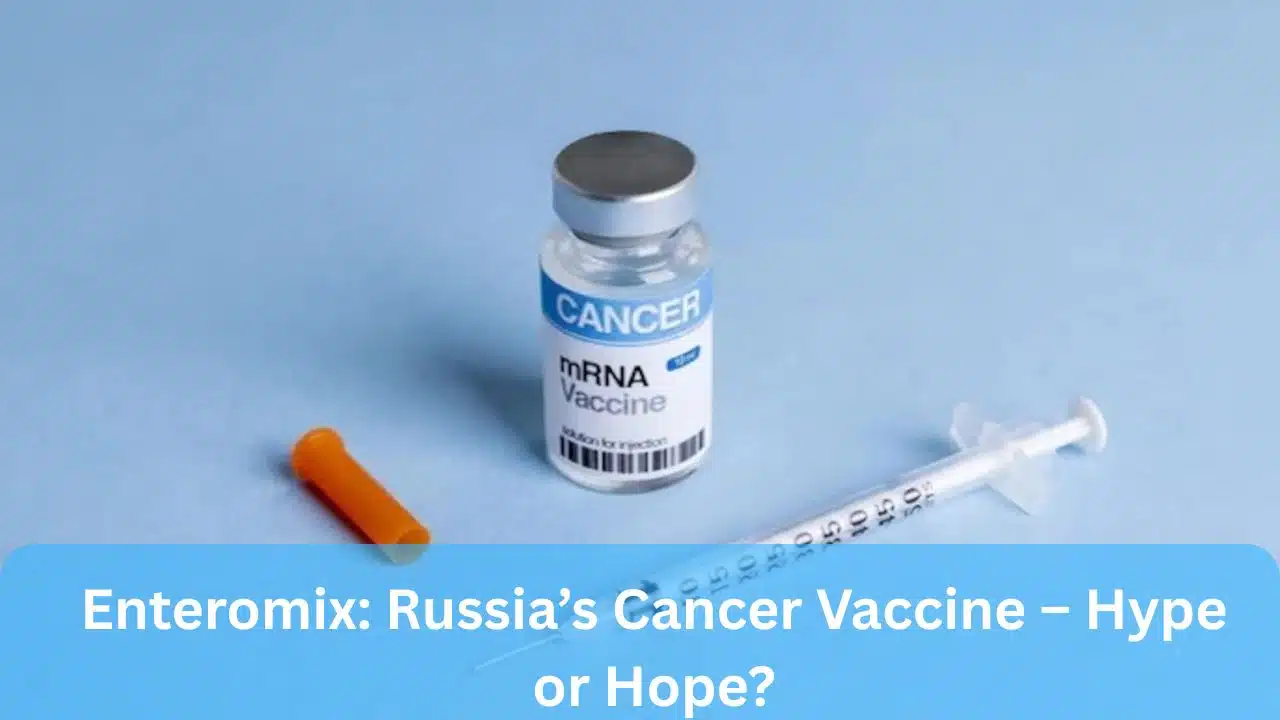In a bold move to protect public health, the U.S. Food and Drug Administration (FDA) has asked the Department of Justice (DOJ) to officially classify certain gas station products—sold over-the-counter but mimicking opioid effects—as Schedule I controlled substances. These unregulated substances have been linked to addiction, overdoses, and even death, yet remain accessible to anyone, including teenagers.
Let’s break down what this action means, what products are involved, and how it could impact public safety and policy in the United States moving forward.
Read- Measles Outbreak and Vaccine Importance in Texas
Also Read
What Are These Gas Station Products?
These are often marketed as dietary supplements or mood enhancers. They go by names like Zaza Red, Tianaa, or Pegasus—and frequently contain tianeptine, an antidepressant not approved for medical use in the U.S. While these products are sold as legal alternatives to opioids, they bind to the same receptors in the brain, producing similar effects—and similar risks.
Tianeptine, sometimes misleadingly called “gas station heroin,” can lead to dependence, withdrawal symptoms, and in severe cases, respiratory depression.
Why the FDA Is Taking Action Now
According to recent reports, calls to poison control centers involving tianeptine have increased by more than 350% in the past three years. Emergency rooms across the country have seen a rise in admissions linked to these substances.
States like Michigan, Alabama, and Mississippi have already banned or restricted these products, and now the FDA wants nationwide control under the Controlled Substances Act.
The FDA formally submitted a request to the DOJ in July 2025 to classify tianeptine as a Schedule I drug—meaning it has a high potential for abuse and no accepted medical use.
How Are These Products Still Legal?
The regulatory loophole lies in how these substances are sold as supplements, not pharmaceuticals. They are often labeled as mood boosters or energy enhancers, skirting the FDA’s oversight for prescription medications.
Retailers like gas stations, smoke shops, and online vendors take advantage of this gray area to continue selling potentially dangerous substances without any quality control.
Youth Access and Addiction Risks
One of the FDA’s biggest concerns is easy access by minors. Since these products are available in everyday gas stations, convenience stores, and even vending machines in some states, teens and young adults can easily experiment—unaware of the real dangers.
“This is not just a regulatory issue—it’s a public health emergency,” said Dr. Robert Califf, FDA Commissioner.
⚖️ What Happens If the DOJ Approves the Request?
If the DOJ approves the FDA’s request:
-
Tianeptine and similar substances would become illegal at the federal level
-
Possession, sale, and distribution could result in criminal charges
-
Manufacturers would be barred from producing or importing these compounds
-
Law enforcement would have authority to seize products from retail stores
This would set a new precedent for how the U.S. handles synthetic opioid-like alternatives.
Public Reaction and Policy Implications
Health experts, addiction specialists, and parent advocacy groups have praised the FDA’s move, calling it “long overdue.” However, libertarian groups and some supplement companies have raised concerns about government overreach.
Still, most Americans remain unaware of the presence of these drugs in common retail environments. Public education will be key as legal and policy changes unfold.
❓ Frequently Asked Questions
What is tianeptine, and why is it dangerous?
Tianeptine is an antidepressant used in some countries, but in the U.S. it is unapproved. In large doses, it acts on opioid receptors and can cause euphoria, addiction, and withdrawal symptoms.
Are these products still legal?
As of now, they are legal in many states but face increasing bans. If federally scheduled, they would become illegal nationwide.
What should consumers look out for?
Avoid products marketed as mood enhancers or energy boosters from gas stations with names like “Zaza,” “Tianaa,” or “Neptune’s Fix.”
✅ Conclusion
The FDA’s recent appeal to the DOJ is a clear signal that public safety must come before profit. With more Americans unknowingly falling victim to gas station drugs, this move could prevent countless overdoses and save lives—especially among vulnerable youth.
If you or someone you know is using these substances, it’s important to seek help and stay informed.
Read More–What Are the Signs of the Newest COVID Variant?
Stay Connected With Google News





